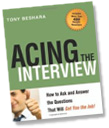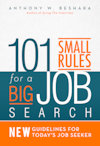Download Our APP!
The Babich & Associates mobile app will allow you to check current job opportunities, submit a resume, pick up helpful job search tips, find us on social media, all from your smartphone!




The Babich & Associates mobile app will allow you to check current job opportunities, submit a resume, pick up helpful job search tips, find us on social media, all from your smartphone!
One of the most important benefits we can provide to our candidates is making sure that you are well prepared for the job search and interview process. Towards that end, we have published several books (The Job Search Solution, Acing the Interview, Unbeatable Resumes, and Powerful Phrases for Successful Interviews) as well as the following helpful tips:
Address: 6030 E Mockingbird Lane
Dallas, TX 75206
Telephone: 214.823.9999
Fax: 214.823.9430
Email: jobs@babich.com
Download the Candidate Data Sheet Now
You will need Adobe Acrobat Reader to open and print the data sheets.

America's only online 45 hour job search program!
See More

If you focus on all of the steps in this process, execute each of them well and repeatedly, you will meet those milestones, and the result will be a job offer you want. My process is very simple – it just isn’t very easy. There are easier ways to find a job, and if you choose those methods over mine, you will get the job you deserve – but not the one you want.
The milestones in the job search process I recommend, in 21 words, are:
My simple process is focused on answering one simple question. Every hiring manager is going to ask in his or her own words, “What can you do for me that the other people I'm interviewing cannot?”
All of your job search activities have the goal of you answering that question persuasively. Writing a resume, phoning for an interview, working through a “screening” interview, and practicing your interviewing skills, are all designed to put you in front of that hiring manager and prepare you to answer that question. Your follow-up communications are intended to secure your opportunity to answer that question again for other decision influencers. Even as you negotiate the job offer, the employer is still seeking to confirm by your actions that your answer to that question was accurate.
The process is simple, the work is hard, and success can be yours - if you learn to answer that question correctly, and better than anyone else does. If so, you will have multiple job offers. If not, you will very likely have to settle for a job that is less than you think you deserve. It’s that simple.

1. The Candidate did not adopt a committed, passionate, "failure is not an option" attitude about finding a job. Many job seekers think that just because they have a new degree, or military training, or some other advantage, that it's going to be easy to find a job. They have absolutely no idea how many interviews and interview cycles are typically required to find a job. They have no idea of the massive number of cold calls it takes to get an interview. Surprised and unprepared to make that commitment, candidates will often quickly grow frustrated with initial rejections.
2. The Candidate had no "system" for finding a job. Without a system, the candidate’s focus wanders. We see them abandon their search as they wait for one opportunity to complete its cycle. They are hung up on the “result” and quit executing. Your search should run like a well-oiled machine that schedules and executes effective interviews with targeted companies. Consistently performing in that process will result in job offers. By developing a “system,” you don’t have to worry about the results.
3. The Candidate was unrealistic – about her value in the market, her skills vs. other candidates, and the average duration of a job search. Do not harbor preconceptions. You are not really going to know your value and the opportunities available for you until you start to manage the job search process and go on interviews. Be skeptical of “salary surveys,” there is too much market fluctuation and geographic variance for them to be accurate. It is going to take a lot longer than you think, and there are going to be many disappointments along the way.
4. The Candidate thought finding a job will be quick and easy. I’ve seen recruiting information from some schools that suggest their degree/training will make your job search short and sweet. It won’t be. You might get lucky and find a good job quickly, but don’t count on it. Instead, expect a long hard road full of potholes and roadblocks. Plan on your search, to find a good job, to take three or four times longer than you probably think today. You will almost certainly become discouraged, maybe very discouraged. That is part of the deal and you need to be prepared mentally for these pressures. It requires that you focus on the “system” and not worry about the result. You will find a good job, but you are going to have to work at it. The only goal is to find that good job sooner, rather than later or not at all.
5. The Candidate did not realize that face-to-face interviews are the only things that really matter. Face-to-face interviews are the only way you can really get a job. Securing face-to-face interviews and performing well are the most important activities, the only ones that really matter, in your job search campaign. There are all kinds of things you can do to secure face-to-face interviews, however a recent study found that 85% of students polled thought they could get an interview by sending a resume. Simply sending a resume will rarely land you an interview. Hundreds, maybe thousands, of others are sending a resume; you’re just one of them.
6. The Candidate thought that the most qualified candidate is always hired. Lack of qualifications certainly keeps some candidates from being hired. However, most employers only reject out-of-hand those candidates who do not have their minimum qualifications. For every good job, there will be many candidates who are sufficiently qualified. The candidate hired will be the one who interviewed well. You need a foolproof, specific, scripted interview presentation that will insure success 95% of the time. It may not guarantee you the job, but it will guarantee that you interview well, and that will eventually lead to a good job.
7. The Candidate blows the interview. In our experience, this almost always happens because the Candidate did not prepare well for the interview, did not sell himself strongly, or did not ask for the job. We’ve seen all types of candidates fail to execute these basic interview functions, but new graduates fail more often. They neglect to dress properly, or can’t clearly communicate their talents and experiences. Many are too intimidated to even ask for the job. The techniques of preparation and execution are simple, but it takes awareness, focus, and practice to hone the skills.
8. The Candidate had the wrong attitude. Wake up! You’re not some valuable commodity over which companies will fight. The employer is not going to try to convince you to hire on – unless it is a bad job. Lose the "what can you do for me?" attitude. Replace it with “Listen to what I can do for you.” The right interviewing script will make the prospective employer want to hire you. If you give them good enough reasons to hire you, they will give you good enough reasons to go to work there. Remember, you have absolutely nothing until you have an offer.
9. The Candidate believed that a well-designed resume, sent over the Internet enough times, would result in a job offer. Not only new graduates make this mistake. There are 56,000,000 resumes on the Internet and barely 2% of them are ever selected for an interview. Undoubtedly, you do need a well-written resume, but expecting it to secure you a job is a pipe dream.

If any of these tips seem obvious, know that I have seen candidates fail to execute each one. If you want to compete in the adult world for a good job, look and act like an adult capable of performing that job. Here are a few basic requirements:
Clean up your act:
Use technology professionally:

This Tip’s information is the most important I have to offer. Ignore me if you want, but not if you are serious about finding a job.
The job of finding a job is not easy. It requires hard work and results in a lot of disappointment and frustration. Unfortunately, you cannot cope with its stress by taking a few days to mope around – if you expect a job any time soon. Your attitude needs to be positive, expectant, and grateful almost every day. You must be prepared for refusals, rejections, and blatant rudeness. I know that these are not natural character traits; they must be learned.
There daily exercises required to maintain the positive attitude you need to come across in the phone calls you make, the e-mails you write, and the interviews you have. Importantly, your family and loved ones should also see this attitude – remember that your job search is stressful on them as well.
Even if you have a positive attitude, as many of us think we do, you need to work on it all the time. Although this is a beautiful, wondrous, and mystical world, many negative things are going to happen to you, if they haven't already. You cannot prevent every one of these negatives from happening, but you can control how you respond to them.
The first step in dealing with negatives is to understand and expect them. In your job search, expect to work hard, expect to be rejected many times, and expect to become frustrated. Understand what effect each will have on your psyche and prepare yourself for those feelings by having a plan to combat them.

You must be aware of the hiring authorities “buying” motivations and how to sell to them. There are basically four questions any hiring organization asks of every candidate, whether they are applying for an entry-level position or to be the company’s next President. Those questions are:
As someone with very little experience, you need to concentrate on answering only the first two questions. You may need to address the third one, but not if you answer the first two well enough. To an employer, there is risk in hiring recent graduates or others just entering the workforce because they cannot look at your past performance record. The fourth question will impact your later career. Today, you don’t really have an ability to negotiate money because you aren’t bringing much expertise to the job.
So, focus on the first two questions. You have to convince the prospective employer that you can do their job and that you are a likable person. The latter issue is addressed by your interviewing style. It is real simple to do – when you understand the concept. I will present more on this in a later Tip.
The major concept that you are going to sell to a perspective employer is this:
I have been a really good, hard-working, dependable, intelligent, and loyal leader. I have also been a good follower with passion, initiative, commitment, and willingness to do whatever needs to be done. Therefore, I will be the same if hired by your company.

You are trying to communicate to the prospective employer that you are the best person for his open position. The key is to cite examples of your superior performance in both your resume and in the interview. Think of the things that you have done in high school, college, or the military that demonstrate not only the above attributes, but any others that might be positive for a prospective employer. Here's a partial list:
A perspective employer is looking to find transferable skills from the above experiences. The skills you need to demonstrate are:
IMPORTANT: go through your experiences and write down any transferable skills each demonstrates. You can demonstrate transferable skills by writing what you learned with each experience and event. What you learned has to be articulated so that an employer can hear that you understand the practical aspects of the experience.
When you can “translate” the event or experience into terms of “what I learned that will apply to working here,” you have just set yourself apart from 95% of your competition.
An example would be:
“While chairman of the fraternity philanthropic committee, I organized a toy drive at Christmas for children at a local church, and two fund raising parties, one in the fall and one in the spring. We raised over $2,500 for a local charity. I learned how to organize and motivate my 35 fraternity brothers, schedule all of the events, and be accountable for the money. This was the first time in the history of the fraternity that we had such a committee and functions. It was so successful, the fraternity has made it a permanent committee and plans for next year are already taking place.”
Now, think about all of the things you have done, the transferable skills, and what you have learned, and write them down for use in your interviews.

It is always a shock to candidates to find out that the importance of their resume, even a well-crafted resume, is grossly overrated. As a professional recruiter since 1973, I have never seen a candidate hired because of his or her resume. You do need a resume, and it should be well written, but all a resume is going to do is help get you in the door to the interview. The interview itself is where you either win or lose the job offer.
People think that a resume is some kind of magical document that's going to get them a great job. The idea that there is some secret formula to the resume is simply untrue. The major reason people overrate resumes is because they can control what they write in one. It is one of those job search activities that can be confused with productivity. I encounter people all the time that devote three or four days to writing a resume. It shouldn’t take more than four or five hours – if you start from scratch. Beyond that, it's a waste of time. Because it is one of the things in a job search that an individual can control, people have a tendency to think that if they devote enough time to it they will get a better job. Wrong!
Getting interviews and managing the process of interviews are 100 more times important than having a good resume. The purpose of a resume is to help get you into the initial interview by providing the hiring authority the information needed to decide if you are a person they should pursue.
The average resume is read in ten seconds because the hiring authority typically receives hundreds of resumes for each opening. Think about it.... ten seconds. If your resume cannot interest the hiring authority in calling you within 10 seconds, all of your artful, miraculous, cosmic, inventive, unique formatting or wording isn't going to matter.
An effective resume will send the clear message to the prospective employer that "you need to interview, then hire, me,” because this is what I've done as a student (or member of the military) and therefore this is what I can do for you!” Remember what I taught you about transferable skills from what you learned.
Career coaches and your placement office at school are going to give you advice and examples about resumes. I personally review 400 resumes a week. I use two hundred of those resumes to help my candidates get interviews and find jobs. I know what works and I will share it with you now.
The secret to a successful resume, however, is not that you have a good one so much as it is how you use it. That is the real secret. Here are some basic tips for your resume:
Length – for someone just starting out in their career, it should never be more than one page.
Name, address, email address, and telephone numbers should be on the top of your resume in black, bold printing. Simple printing! No fancy script. Nothing cute. Just use a plain, black, and simple bold font.
I do not recommend an Objective or Summary/Highlights of qualifications. Any objective or summary is either too general or broad to fit a specific need, or so specific that it will eliminate you from other opportunities.
Chronological format is the only style you should ever use.
Prior experience, either full-time or part-time, can be listed. These can be jobs where you were paid, volunteer work, or even nonacademic learning experiences. You'll want to describe the experience, as I mentioned above, in terms of outstanding accomplishments or what you learned. This part of the resume, along with academic accomplishments, is going be the most important for setting you apart from other candidates.
I do not recommend putting personal information on the resume. Personal information and salary requirements will eliminate you more than they will help you get an interview. References are not necessary in the initial stages of the interview.
Use positive, action-oriented verbs. Action verbs, such as attained, achieved, accomplished, investigated, set priorities, tested, inspired, influenced, determined, coached, etc., enhance the description of your experiences and accomplishments. You can find lists of many more with a little research.
Standard Resume Example
EDUCATION:
University/College (years attended) Describe the degree you received, primary majors, GPA and any outstanding academic performances you attained
High School (years attended) Describe any outstanding achievements and honors. The further along you get in your career, the less you will write about your high school experience. Eventually you won’t include it at all, but in your first resume you will.
WORK EXPERIENCE
Date to date – Describe any work experience, even if only part-time. Describe what you learned from the job, as well as any outstanding performance.
Date to date – Same as above.
VOLUNTEER EXPERIENCE – Describe any volunteer experience and what you learned.
ACTIVITIES / INTERESTS / ACCOMPLISHMENTS – Describe here any outstanding activities, interests or personal accomplishments you may have.
Cover letters
Cover letters are as overrated as resumes. A well-written cover letter needs to be short and to the point. If a resume is read for 10 seconds, a cover letter probably gets read in only five seconds.
The purpose of a cover letter is to briefly state why you should be interviewed, as well as accentuate the facts in your resume that are most important to a prospective employer. As a student, or person just coming to the workforce, it should be simple and to the point. It can be mailed or emailed with your resume. It should read something like this:
Mr./Ms. _______:
You were recommended/referred to me by _______. (Only if you were referred that way)
or
You should review my resume and interview me because:
Read my resume and let’s talk this week.
Sincerely,
Your name

You have to research the prospective employer. For students, the career center at your school can really help with research resources. The primary benefit of the Internet to your job search is its help to your research. Years ago at our company, we had a library of catalogs and brochures about the companies with which we did business. Our candidates would review those before they interviewed. The Internet has changed all that.
You absolutely must research a company with which you are going to interview before the interview. I'm amazed by the number of candidates that interview knowing very little or nothing about the company and the person with whom they are interviewing – even those seeking positions requiring more experience.
I recently represented a candidate with an undergraduate degree in engineering from a very prestigious college, an MBA from one of the top 10 graduate schools in the country, and a track record that was absolutely stellar. We had two weeks to prepare for an interview with an excellent company for a position as vice president. He went to the interview having done no research on the company ... none, zip, nada.
He figured that since he “knew of them" from the marketplace, that's all he needed. Not only did he not get past first base in the interview process, it was embarrassing. Don't let this happen to you! You have to research the prospective employer and it is easy to do.
The vast majority of companies have web sites that tell you what they do. It isn't hard to do this kind of research. Thoroughly review the company’s web site before an interview – and take notes. Often, companies will provide a description of the job for which you are interviewing on their web site. Even if the company is small, it's going to have information on its web site that you better know.
If you’re interviewing with a public company, there’s no excuse for not knowing a wealth of information about them. You should be knowledgeable about everything from their officers, market cap, stock price, advances and declines in the marketplace, the number and size of their different divisions, who runs them – even the problems that they've experienced. You can probably find newspaper articles, magazine articles, white pages, and other kinds of published materials about the company and its people. Even if you find adversarial information about the company, asking about it once you are in the interview shows that you are a "student of the game."
It is very impressive when the candidate goes into an interview having done a lot of research. You might even Google the person that will be interviewing you. Some resources, like Hoover's, will give you the names of the company’s competitors. Knowing who the competitors are not only gives you information about the industry, it also gives you an idea of other companies you might target for an interview. The more research you do on a company and the more that you know about them in the interview, the better you will do.
Again, take good notes so you can incorporate them in your interview.

You may be asked to take all kinds of psychological, aptitude and intelligence tests. Be prepared for what I call, the paradox of testing. Every company that has ever tested candidates will say that, at most, testing accounts for only 25% of their final decision. Don't believe a word of it! Whatever kind of test is used, from grapho analysis to psychiatric interviewing, it is a qualifier that you must pass with an arbitrarily set minimum standard. You will not advance any further in the interview process unless you meet that standard.
Companies use testing to objectify the hiring process. No one has to put their butt on the line and risk being the only person who wants to hire you if they rely on the test. That's reality and it isn't going to change.
You may be fortunate if you've just come from an environment, i.e. school, where testing is routine. Whatever you do, don't say something stupid like, "Oh, my God, I'm absolutely awful when it comes to tests.” This may be true, but don't tell a prospective employer.
Before you take the test, get lots of rest, eat a good meal, and relax. Do the very best you can. Look at it as a challenge. Take it in stride. Trying to prepare for it is useless. Do not be overly analytical or agonize over each answer, nor should you be flippant about the answers you give. Do not try to outguess the test! If your answers are based on what you think they are trying to find, you are finished. You can't outguess them.

There are the events that in one way or another don't result in a job offer. As you go through each one of them, you need to assess what you could have done better.
You have kept records about each opportunity you pursue. Follow those notes up with a phone call 10 days or so after your last contact with the hiring authority. You'll be amazed at the number of opportunities that happen simply because the candidate persisted. Often, the hiring authority focuses on one or two particular candidates, but drags the process out so long that those candidates move on. When the hiring authority has to start over, you want him/her to know you are available.
If you do not hear from the hiring authority after several follow-up attempts, you should call or write to ask why you were not pursued. If you can get the person on the phone, the following script works well:
“Mr. / Ms. ________, I really appreciate the opportunity I had to interview with your company. Since I have not heard from you within the time you said a decision would be made, and I have called a number of times, I'm assuming that the company has pursued another candidate. However, I would like to ask your help. Could you please tell me how I might have performed better in the interview? I’m hoping for constructive criticism that will help my continuing job search. What I might have been able to do better, or tell me why I was not considered for a second interview?"
Don't expect a call back or email from every follow-up like this. If you do not hear from the hiring authority after you make this contact, put this person in your rotation to call 10 days later to remind him that you are still available. Remember to keep your cool. Never sound irritated or mad. And do not take it personally!
If you were eliminated as a candidate after the second or third interview, a decent hiring authority should communicate to you the reasons why. If he or she does not, it is a good idea to call, or as a last resort write, to ask what happened. Again, remember to keep your cool. Don’t be surprised if the reasons you were not hired had nothing to do with you.
Most hiring authorities think they're going to interview and hire someone within two to three weeks. In fact, the average hiring cycle is nearly 90 days. Primary candidates can take a different job or turn down an offer, and often do. Continue calling to keep yourself on the mind of the hiring authority.
If you make it to a second or third interview with any organization, you were probably considered qualified to do the job. If the company hires someone else, it's not necessarily based on his or her ability to do the job better than you, it is likely to be other intangible reasons. If you have progressed past the second or third interview, you may still be a viable candidate, even though the company is pursuing someone else. Don’t bolt for goodness sake, unless you find a job. Continue to pursue this opportunity for at least five weeks after their new employee has reported to the job.
Tell the hiring authority that you were impressed by him and the company, and that you would like to be considered for any other opportunities. Ask if he or she can refer you to any other hiring authorities, within or outside of the company. You'd be surprised how many people find employment with this technique. I cannot keep disappointment from happening. However, if you work the system as I've instructed, you will have many other, equally good opportunities and your disappointment will be short-lived.

Two or three times a month, we get a call from a person who wants to leave their job primarily because the counteroffer that he or she agreed to three or four months earlier had, agonizingly, not worked out. Their approach is usually accompanied by an attitude of anger, disappointment and disgust that they are back looking for a job with moredetermination than ever. The perceived promises in the counteroffer they accepted didn't materialize and they are really committed to leaving their job...this time.
"Buying" an employee back when they try to resign, a counteroffer, rarely works out, even in the short run. 98% of the time, the employee leaves within six months, and often with more acrimony than the first attempt. Counteroffers rarely work out because:
1. Management makes a counteroffer to solve an immediate problem. You got caught with your pants down. It couldn't have come at a worse time. You had to do something quickly. You put your finger in the dyke. Later, you realize you were blackmailed. You were held up by an employee who was unhappy and leaving. You needed them more than they needed you. You wake up and realize you were "managed!" And you are damn mad about it!
2. The relationship you had with this employee is not the same anymore. This employee, in essence, fired you and the company. Or, at least, tried. You and your company, as with anyone else, don’t like being fired. It dawns on you, a few days after your counteroffer was accepted, that this person doesn't give a flip about you or your company. You did what you had to do to hang on to them, but, we are not " all in this together " any more.
3. Money and title, the two most popular tools used in a counteroffer, are temporary. Most of the time, the adjustments you made to keep this person are cosmetic and will rarely overcome the underlying reasons as to why the person wanted to leave in the first place. Your company, the job, personalities, etc. may have been given a couple of minor changes but the underlying nature of your company hasn't changed. After the “glow” of the importance of money wears off, your employee is mentally and emotionally right back where they were before.
4. Now that the “tail " has wagged the dog, everyone in your company, in spite of what you think, knows what this person did and it is just a matter of time before others are going to try it in their own way. You and your company have lost the respect of the employees who are aware of the counteroffer. The fear of this happening again is driving you nuts.
5. The emotion of the moment forced you to make this person feel special. But, how long is that feeling of euphoria going to last? What is going to happen when it wears off?
6. An employee leaving never comes at a good time. Here is what you will eventually say to yourself, " How could he/she do this to me?... It couldn't have come at a worse time....What am I going to do if they do it again? So, when (..not if) is this person going to do it again? If that happens, I'm gonna look like real schmuck and nobody is going to respect me as a manager."
7. Normally, for the counteroffer to be successful, you had to involve other managers, including ones one or two levels above you. What are they going to think of you if this happens again, not only with the person you just bought back, but others in the organization? Even though they all bought into it because they had to, you are going to be held responsible for all of the problems this has created. When/if this person eventually leaves anyhow, your management acumen will be questioned.
8. Good companies don't buy people back. In your heart, you know that. So, the insult to injury is that, not only were you blackmailed but, you know you and your company are not considered to be well managed.
9. The employee you bought back probably got a significant increase in salary. That fact is going to eat at you and when the salary reviews come around again you’re going to remember how you were leveraged. You are going to feel like the employee already got a raise. The employee doesn't feel that way at all. He or she is going to expect a raise like everyone else. It is a “no win” deal.
Counteroffers rarely work. It seems like a good idea at the time. If you have to do it for sheer survival, start looking on a confidential basis for your employee’s replacement. We know because we work with hundreds of “confidential" searches every year. Many times they are "successful" counteroffers being replaced.





